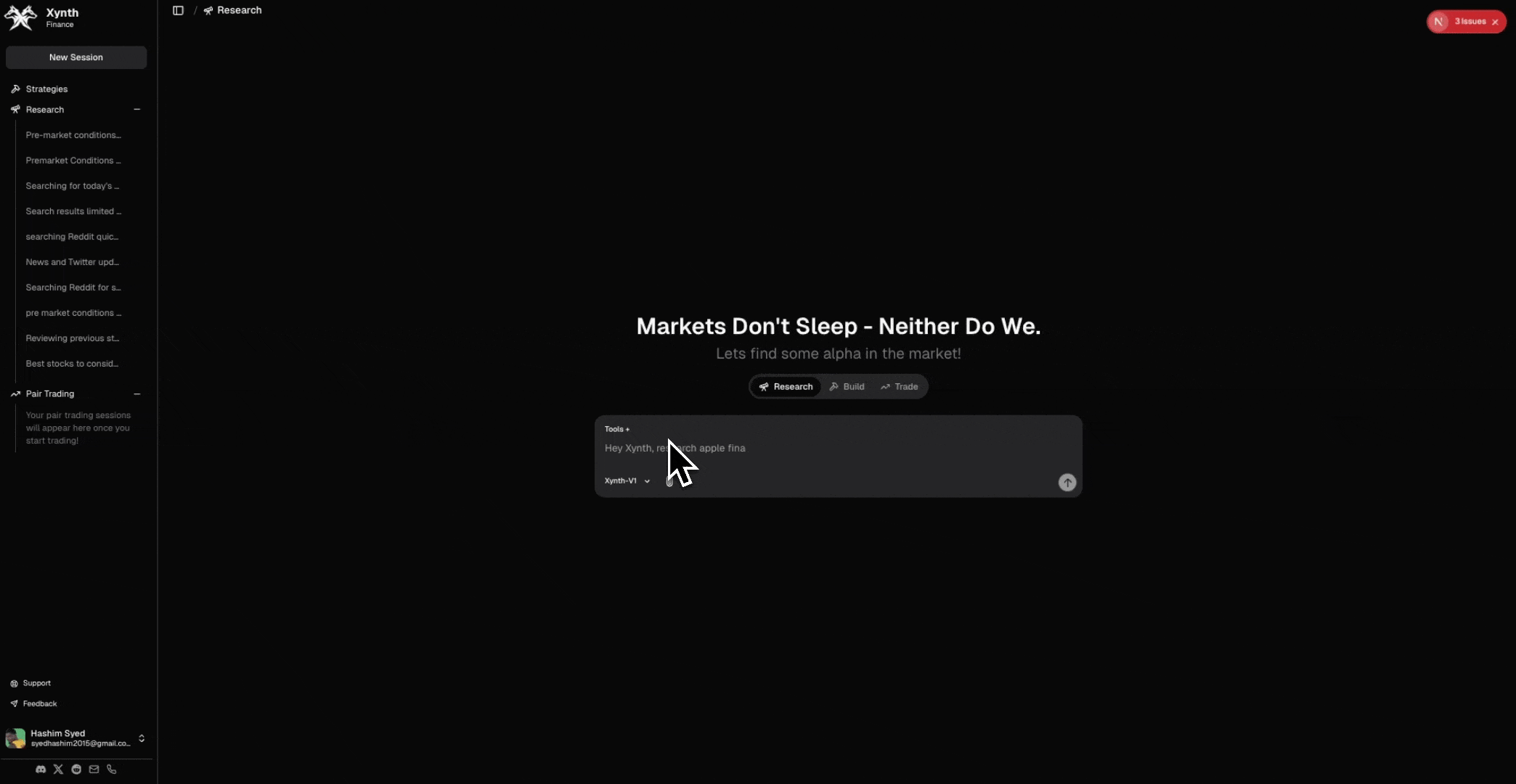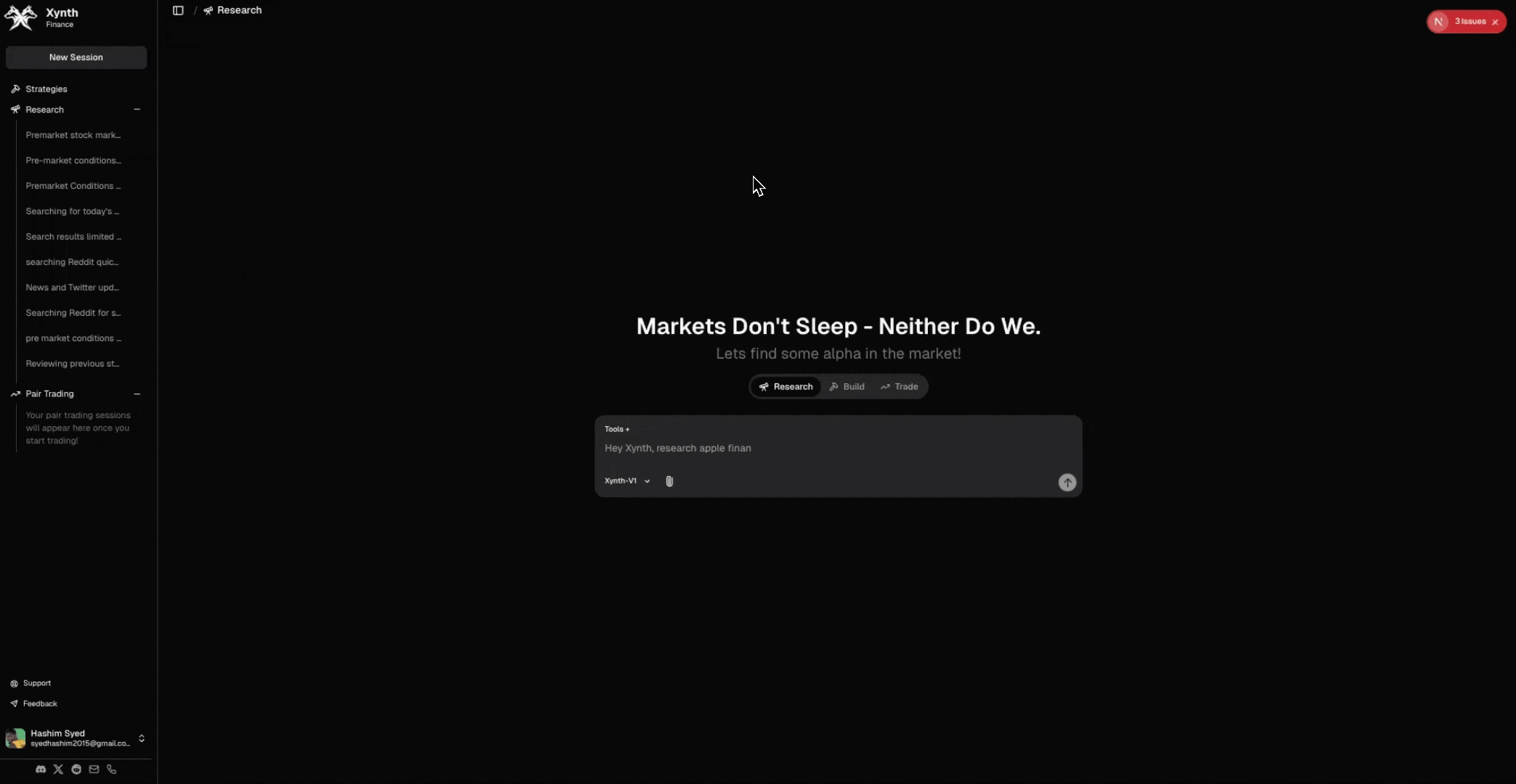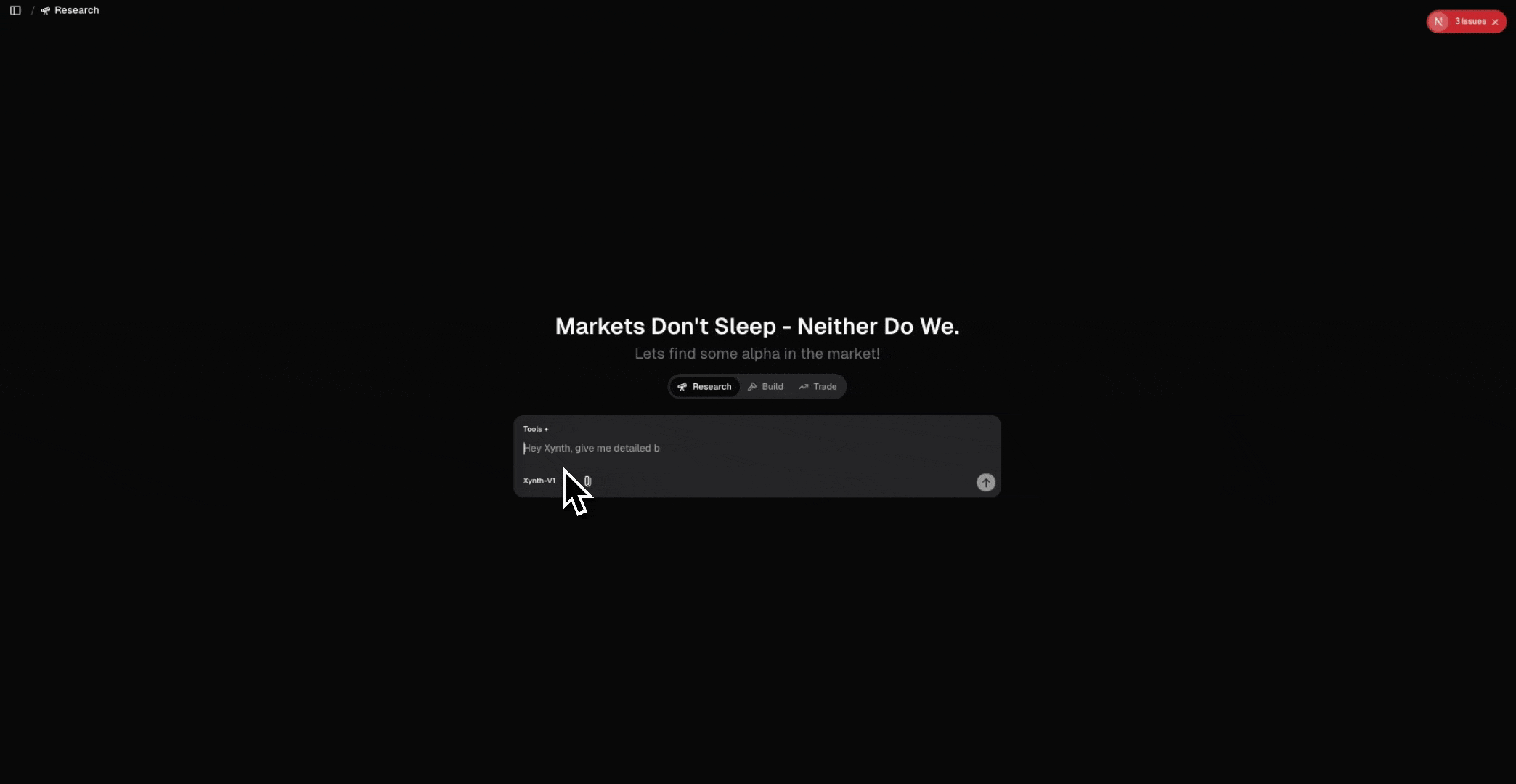#
Unified Search
The unified search reads through Twitter posts, Reddit communities (posts + comments), and news to provide a citation/evidence-based answer to your questions or tasks. It aims to reduce the users time by reading through on average 10-20k words in under a minute and providing a high quality evidence-based answer.
#
Types of Searches
The unified search is broken down into three main types of searches:
#
Web Search
The web search is the default type of search. It reads through equal amounts of social sentiment (Reddit + Twitter) and news articles to provide a citation/evidence-based answer—an all-in-one general answer to your question. Web search will give you a balanced results of social sentiment and news articles.
💬 Reddit · 20 sources 🐦 Twitter · 20 sources 📰 News · 40 sources
When to Use:
- In depth Market Conditions
- Ask for up to date breaking news or catalysts
- Inquire about general stock overviews
- Anything you would ask google or chatgpt
How to trigger: This is the default search that Xynth will trigger if no other search type is specified. You can simply tell xynth directly using text to "search for" or "research" something and it will trigger this. Alternatively you can select the web search tool lik below.

#
Social Search
Social search is a specialized mode that primarily reads Twitter and Reddit to gather social sentiment around your query. It includes community insights (Twitter and Reddit) and opinion polls that classify public posts and comments into opinion clusters, giving you a clear view of how people feel about the topic.
💬 Reddit · 50 sources 🐦 Twitter · 50 sources 📰 News · 5 sources
When to Use:
- Social sentiment collection on a specific asset
- Social media reaction to events
- Discovering community insights for stock ideas or specific topics
- You want clear social backing on X vs Y
How to trigger: Use the Social Search tool directly, or clearly tell Xynth to "use social search." Repetition helps (e.g., "Use social search for this.").

#
News Search
News search is a breaking news-focused mode that prioritizes fresh, market-moving headlines and Twitter reactions. It delivers breaking news summaries with citations, trading impact analysis, trading implications, action items, timing considerations, and risk assessment—perfect for catching catalysts and time-sensitive opportunities.
🐦 Twitter · 50 sources 📰 News · 50 sources
When to Use:
- Breaking news and catalysts on specific tickers
- Market-moving events and announcements
- Regulatory updates and policy changes
- Earnings surprises and guidance updates
- Time-sensitive trading opportunities
- Quick catalyst identification for any situation
How to trigger: Use the News Search tool directly, or clearly tell Xynth to "use news search." Be specific about wanting breaking news or catalysts for best results.

#
Tips and Reminders
#
💡 Tips
Chain searches with other tools: Combine search with other tools for powerful workflows.
- Search for "most undervalued stocks" → use financial screener to validate with concrete metrics
- OR
- Use stock screener to find candidates → search for "community sentiment on [ticker]" to gauge public opinion
Use search to jumpstart your process: Early searches set strong context for Xynth, improving performance throughout your session. Try searches like "pre-market conditions today" or "how is SPY looking today" to establish market awareness.
Research strategies and insights: Search for analyst strategies, research papers, and trading methodologies to discover new approaches and gain professional insights you might not have considered.
#
⚠️ Reminders
Don't use search for numerical data: Never rely on search to grab concrete numbers, financial metrics, or precise data points. Use our specialized data tools and direct sources for accurate, real-time information.
Don't base decisions purely on search: Always ground your analysis with raw data tools. Search provides context and insights, but combine it with concrete financial tools for well-rounded decision-making.

